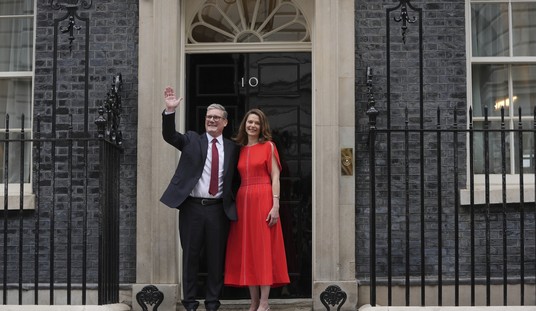Earlier this month, a judge sided with Mark McCloskey and disqualified prosecutor Kim Gardner and everyone in her office from his case. Just before Christmas, Gardner appealed that decision claiming the judge abused his discretion.
Should Judge Thomas Clark II’s order disqualifying Circuit Attorney Kimberly Gardner from the Mark McCloskey case stand, it will set “an extremely low standard,” by which a judge can remove an elected prosecutor from a case, according to an appeal Gardner filed Tuesday.
Missouri Court of Appeals Eastern District Judge Robin Ransom gave Clark until Jan. 4 to respond to Gardner’s appeal, which could delay the appointment of a special prosecutor to the case.
…”If respondent’s order is allowed, it sends a clear message to defendants that an acceptable pre-trial strategy is to drum up coverage in the media in order to paint the picture that a prosecutor has an improper interest in a case.”
You may recall that the issue that got Gardner kicked off the case was a pair of fundraising emails she sent out just before and just after filing charges against the McCloskeys. Back in July the McCloskeys filed a motion arguing that the fundraising solicitations gave Gardner and improper “interest” in the case.
Gardner responded to that motion in August claiming the McCloskeys were turning the case into “political theater.” However, as I pointed out at the time, her response also made some clearly false claims about her own fundraising solicitations. For instance, she claimed the emails were really responses to criticism from President Trump and other elected officials and that the McCloskeys were only mentioned once in passing. That was false as they were mentioned at least twice, arguably three times, in the solicitation email.
Gardner’s arguments obviously didn’t fly with Judge Clark who wrote, “This email language extends beyond campaign rhetoric. Rather, it seeks to seemingly energize supporters to contribute by referencing defendant, his conduct and even his social status…The twin fundraising solicitations paint defendant as a wealthy elitist and perhaps worse.”
Now Gardner is arguing that allowing her to be kicked off the case would set a bad precedent. But her suggestion that any defendant could use this as a “pre-trial strategy” is nonsense. Gardner wasn’t removed from the case because it garnered media attention. She was removed because she used the McCloskeys to raise money for her re-election in an email that clearly suggested they were villains, despite having not even been charged much less convicted. In other words, it was Gardner’s behavior that created the improper interest, not anything the McCloskey’s did. The McCloskey’s attorney was not impressed:
McCloskey’s attorney, Joel Schwartz, said: “Judge Clark’s ruling was thorough and well-reasoned and we expect his ruling to be upheld by the Court of Appeals.”
So far the disqualification only applies to Mark McCloskey’s case. There is a separate case against his wife which has some additional wrinkles. The gun Patricia McCloskey was holding that day was later turned over to prosecutors by the McCloskey’s attorney. It was not operational at the time. The McCloskey’s claimed the same gun had been used as a prop in a previous lawsuit and therefore had been rendered non-operational for use in court.
When a prosecutor found that the gun wasn’t operational, he ordered the crime lab to reassemble it so that it worked and the prosecutors then charged Patricia McCloskey with evidence tampering, claiming she had modified the gun after the incident to make it appear harmless. It’s not clear what evidence prosecutors have to support this claim.








Join the conversation as a VIP Member